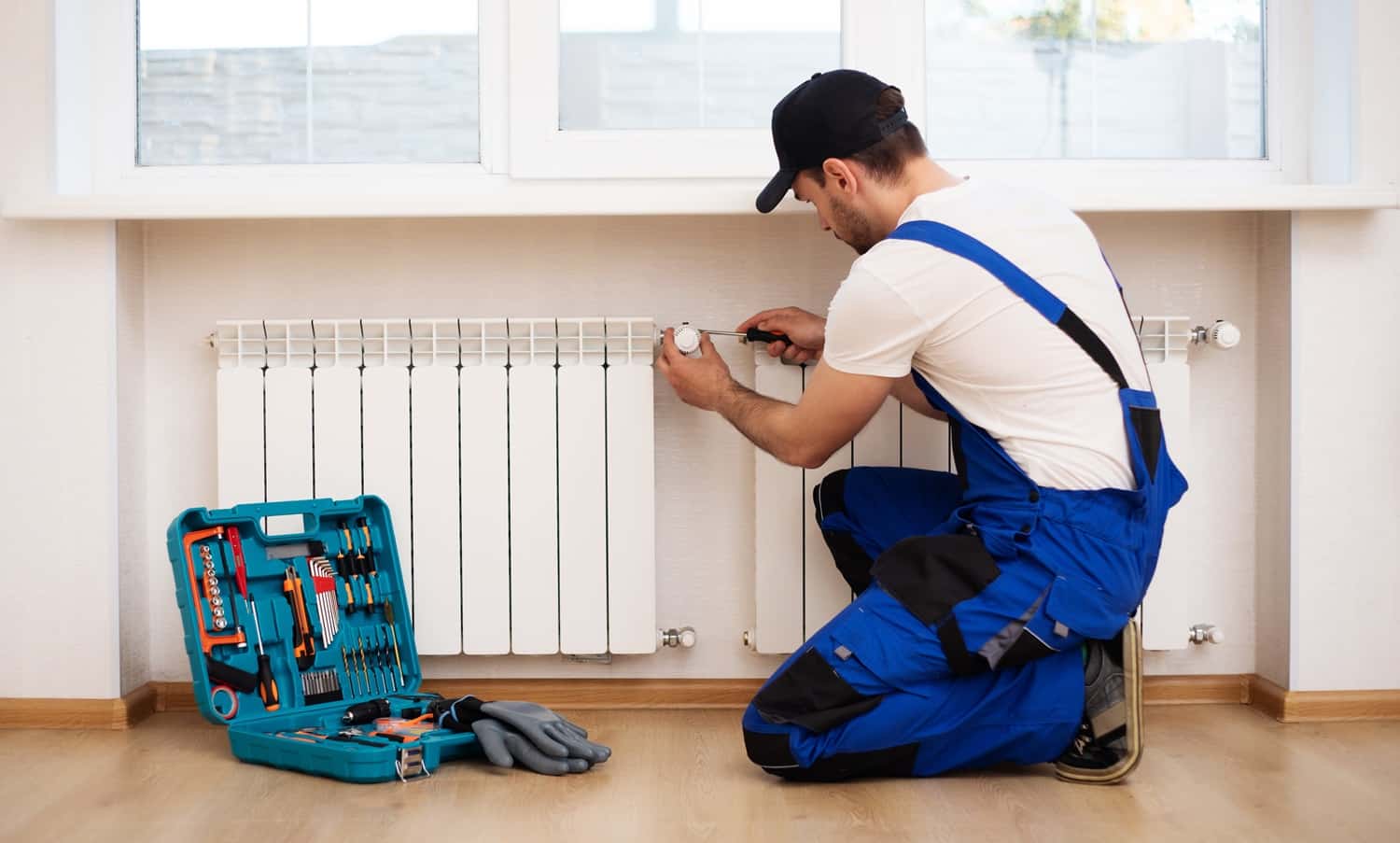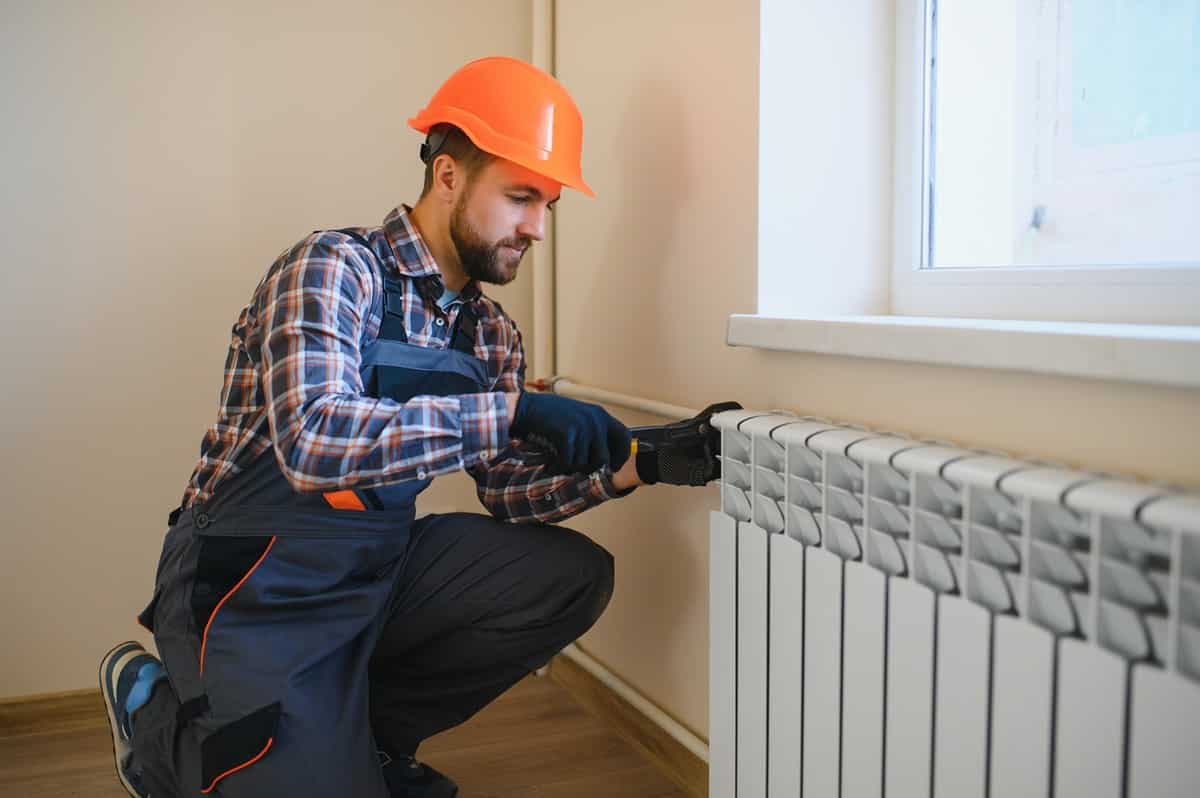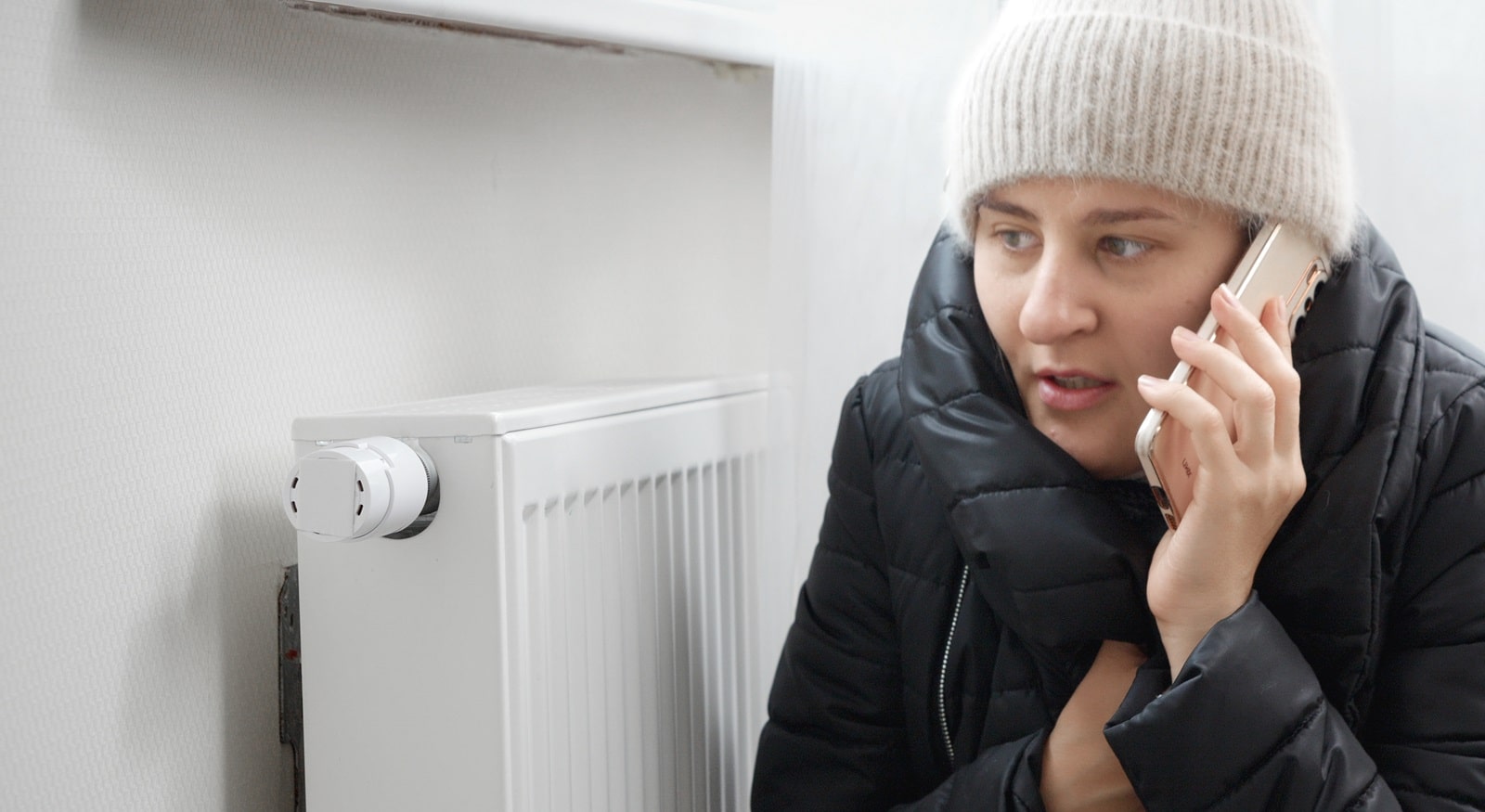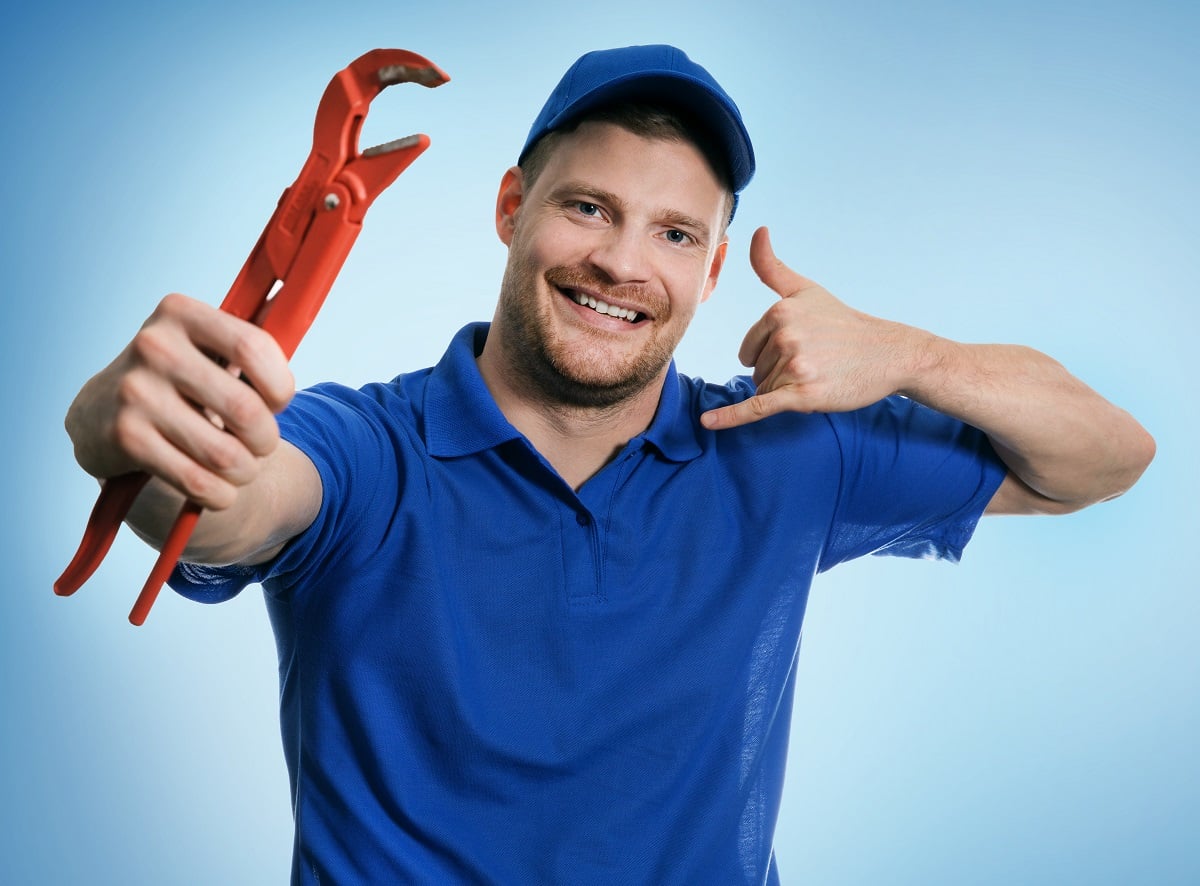 What Is Bleeding Radiators : Homeowner Guide
What Is Bleeding Radiators : Homeowner Guide

Bleeding radiators is an essential home maintenance task that ensures your heating system operates efficiently. When air gets trapped in your radiators, it can prevent hot water from circulating properly, leading to cold spots and uneven heating. This not only affects your comfort but also forces your boiler to work harder, which can increase your energy bills.
Why Bleeding Radiators Is Crucial
Efficiency: Bleeding your radiators removes trapped air, allowing hot water to heat the entire radiator surface evenly. This means your room heats up faster and maintains the temperature more effectively, reducing the workload on your boiler and saving energy.
Cost Reduction: With a more efficient system, your boiler uses less energy, leading to lower heating costs. Regular bleeding can help maintain this efficiency and prevent costly repairs caused by increased strain on your heating system.
Consequences of Neglecting Radiator Maintenance
Ignoring the need to bleed your radiators can lead to a poorly functioning heating system, increased energy consumption, and higher utility bills. In the long run, it can also cause wear and tear on your boiler and heating components, potentially leading to expensive breakdowns.
How Plumbers 4U Supports Homeowners
At Plumbers 4U, we understand the importance of a well-maintained heating system. We offer guidance and professional services to help you bleed your radiators effectively. Our experienced team can provide advice, assist with maintenance, and ensure your heating system is ready for the demands of winter, all while helping you to save on energy costs.
Identifying the Need: When to Bleed Your Radiators
recognising when your radiators need bleeding is key to maintaining an efficient heating system. If you’ve noticed uneven heating, with the top of the radiator feeling cooler than the bottom, or if there are gurgling sounds coming from the system, it’s likely that air has become trapped inside. These symptoms can lead to poor heat distribution and increased energy consumption as your boiler works harder to heat your home.
Signs That Your Radiator Requires Bleeding
- Cold Spots: A radiator that’s warm at the bottom but cold at the top is a classic sign of trapped air.
- Noises: Gurgling or clanging sounds can indicate air bubbles moving through the system.
- Temperature Disparity: Rooms taking longer to heat up or having a lower temperature than expected.
Optimal Timing for Radiator Maintenance
- Seasonal Considerations: Bleeding your radiators is best done annually, ideally before the winter months set in, to ensure your system is ready for the cold.
- Post-Maintenance: After any work on your heating system, it’s wise to bleed the radiators to remove any air that may have entered during the process.
At Plumbers 4U, we understand the importance of a well-functioning heating system. Regular bleeding is part of our recommended maintenance to keep your home cosy and your energy bills in check. If you’re unsure about how to proceed or if the task seems daunting, we’re here to help. Our team is equipped to ensure your radiators are bled correctly and efficiently, aligning with our commitment to your winter readiness and overall satisfaction.
The Right Tools for the Job: Preparing to Bleed Radiators
Before you begin the process of bleeding your radiators, it’s essential to gather the right tools to ensure the task is done efficiently and safely. At Plumbers 4U, we recommend having a few items on hand to make the process as smooth as possible.
Essential Tools for Effective Bleeding
- Radiator Key: This is the primary tool you’ll need. It’s specifically designed to open the bleed valve on your radiator.
- Cloth: Have a cloth or towel ready to catch any drips of water that escape when you bleed the radiator.
- Gloves: Protect your hands from any potential heat and provide a better grip with a sturdy pair of gloves.
Household Substitutes for a Radiator Key
If you don’t have a radiator key, don’t worry. You can use:
- Flathead Screwdriver: Many bleed valves are designed to accommodate a screwdriver if a radiator key is not available.
- Alternative Tools: In some cases, an Allen key, spanner, or pliers can be used, depending on the valve type.
Preparing for Different Radiator Types
Different radiator types may require additional or alternative tools. For example:
- Vertical Radiators: You might need a step ladder to reach the bleed valve if it’s located at the top.
- Towel Radiators: These often have a different valve design, so check if your standard tools fit or if a specific key is required.
By ensuring you have the right tools before starting, you can avoid any interruptions once you begin the bleeding process. Remember, if you’re unsure about any step or if you need assistance, our team at Plumbers 4U is always ready to provide expert help.

Step-by-Step Guide: How to Bleed Your Radiators
Bleeding radiators is a straightforward task that can significantly improve the efficiency of your home heating system. At Plumbers 4U, we’ve outlined a simple process to help you ensure that your radiators are functioning optimally.
Preliminary Steps for Bleeding Radiators
Before you start, ensure your heating is turned on so you can identify which radiators require bleeding. Once identified:
- Turn Off Your Heating: Allow the radiators to cool down to avoid any potential burns.
- Protect Your Flooring: Place a cloth or tray beneath the radiator valve to catch any water that may escape.
Locating and Operating the Bleed Valve
The bleed valve is typically found at the top corner of the radiator. To operate it:
- Insert the Radiator Key: Fit the key into the valve.
- Turn Anti-Clockwise: Gently turn the key anti-clockwise to open the valve slightly.
Releasing Trapped Air and Sealing the Valve
As you open the valve, you’ll hear a hissing sound as the trapped air escapes. Once water starts to dribble out, this indicates that all the air has been released.
- Close the Valve: Turn the key clockwise to seal it tightly.
- Wipe Away Water: Immediately clean up any spills to prevent water damage.
By following these steps, you can bleed your radiators effectively. Remember, if you encounter any issues or feel uncomfortable performing these tasks, our experts at Plumbers 4U are just a call away, ready to assist you with your heating needs.
Dealing with Different Radiator Types and Configurations
When it comes to bleeding radiators, the type of radiator you have can influence the process. At Plumbers 4U, we want to ensure you’re equipped with the knowledge to handle various radiator configurations.
Bleeding Vertical and Towel Radiators
Vertical radiators and heated towel rails might require a ladder for access, as the bleed valve is often situated at the top:
- Vertical Radiators: Locate the valve at the highest point to ensure all air is released.
- Towel Radiators: Similar to standard radiators, but ensure the heating is off and the unit is cool to the touch before bleeding.
Modern Radiators with Self-Bleeding Valves
Modern radiators may come with self-bleeding valves, which automatically release trapped air, reducing the need for manual bleeding:
- Self-Bleeding Valves: Check manufacturer’s guidelines to understand how your specific self-bleeding system operates.
Maintenance for Electric Radiators
Electric radiators typically do not require bleeding as they do not use water to heat:
- Electric Radiators: Instead of bleeding, regular dusting and checking for electrical issues are the main maintenance tasks.
Impact of Radiator Type on Efficiency and Maintenance
The type of radiator affects both the efficiency of heat distribution and the maintenance required:
- Efficiency: Properly bled radiators heat more evenly and efficiently.
- Maintenance: familiarise yourself with your radiator’s specific needs to ensure optimal performance.
Remember, if you’re unsure about the type of radiators you have or how to maintain them, our team at Plumbers 4U is here to help guide you through the process.
Post-Bleeding Procedures: Ensuring System Integrity
After successfully bleeding your radiators, it’s crucial to verify the system’s pressure and ensure everything is running smoothly. At Plumbers 4U, we guide you through the final steps to maintain your heating system’s integrity.
Checking and Adjusting Boiler Pressure
Once bleeding is complete, it’s important to:
- Check the Boiler Pressure: Use the pressure gauge on your boiler to check the pressure.
- Ideal Pressure Levels: Most systems should be between 1 and 1.5 bar. Consult your boiler’s manual for specific recommendations.
Restarting the Heating System
After adjusting the pressure:
- Restart Your Heating: This allows you to check that radiators are warming up evenly.
- Verify Warmth: Ensure all radiators are heating properly, indicating a successful bleed.
Troubleshooting with Plumbers 4U
If you encounter any issues:
- Persistent Cold Spots: This may require further bleeding or balancing of the radiators.
- Pressure Issues: If the pressure is too low or high after bleeding, it might indicate a leak or a need for repressurising.
For any concerns, our team at Plumbers 4U is ready to assist. We can help troubleshoot any post-bleeding issues, ensuring your heating system operates at peak efficiency. Your comfort and safety are our top priorities, and we’re committed to providing you with the support you need for a warm and energy-efficient home.
Safety First: Avoiding Common Bleeding Hazards
Ensuring your safety is paramount when performing any maintenance on your home’s heating system. Bleeding radiators, while a relatively simple task, comes with certain risks that can be mitigated with the right precautions.
Preventing Scalding During Radiator Bleeding
To prevent scalding:
- Wait for the Radiator to Cool: Always allow your radiators to cool down before you begin bleeding them. This reduces the risk of hot water splashing out and causing burns.
- Use Protective Gear: Wear gloves to protect your hands from any hot water or sharp edges you may encounter during the process.
The Importance of Bleeding Radiators When Cool
Bleeding radiators when they are cool is not only safer for you but also ensures a more accurate release of trapped air, as the system is not under pressure from the hot water circulating through it.
When to Call a Professional
While many homeowners are comfortable bleeding radiators themselves, there are times when it’s best to call in a professional:
- Gas Safety: If your heating system involves gas components, always defer to a Gas Safe Registered plumber to handle the task.
- Complex Issues: Should you encounter any complications, such as a stuck valve or a leak you can’t fix, our team at Plumbers 4U is ready to provide expert assistance.
By following these safety measures, you can confidently maintain your heating system while protecting yourself from potential hazards. Remember, we’re here to support you, ensuring your home remains a safe and warm environment.
Troubleshooting After Bleeding: Addressing Persistent Issues
Even after a thorough bleeding process, you might encounter radiators that remain cold or exhibit other issues. At Plumbers 4U, we’re committed to helping you resolve these challenges efficiently.
Steps to Take for Cold Radiators Post-Bleeding
If your radiator is still cold:
- Repeat the Bleeding Process: Sometimes, air can be trapped in pockets that don’t clear on the first attempt.
- Check All Radiators: Ensure that all radiators have been bled, starting from the lowest level of your home upwards.
Identifying and Rectifying Leaks or Stuck Valves
- Visual Inspection: Look for any signs of water around the valve and pipes.
- Gentle Manipulation: If the valve is stuck, try gently turning it with the appropriate tool. If it doesn’t budge, it’s time to call in the experts.
Consulting a Heating Engineer
- Persistent Cold: If a radiator won’t heat up after multiple bleeding attempts, it may be time to consult a heating engineer.
- Unusual Boiler behaviour: Should your boiler show signs of incorrect pressure or strange noises, professional advice is necessary.
Rapid Response from Plumbers 4U
- 24/7 Availability: We offer a rapid response service for urgent heating issues.
- Expertise: Our Gas Safe Registered engineers are equipped to handle a range of problems, from simple fixes to complex system issues.
If you’re facing persistent heating challenges, don’t hesitate to reach out to us. Our goal is to ensure your heating system is running smoothly, providing you with a warm and comfortable home environment.
maximising Efficiency: Regular Maintenance and Upkeep
To ensure your radiators operate at peak efficiency, regular maintenance is essential. At Plumbers 4U, we recommend incorporating a few key practices into your routine to keep your heating system in top condition.
Optimal Frequency for Bleeding Radiators
- Annual Bleeding: Bleed your radiators at least once a year, ideally before the heating season begins.
- Symptom-Driven Maintenance: Additionally, if you notice signs of air trapped in the system, such as cold spots or unusual noises, it’s time to bleed.
Complementary Maintenance Tasks
Beyond bleeding, other tasks can help maintain your system:
- Chemical Inhibitor Levels: Regularly check and maintain the correct levels of chemical inhibitors to protect against corrosion and sludge buildup.
- Balancing Your Heating: Ensure even heat distribution by balancing your radiators, adjusting the valves so that all radiators heat up at the same rate.
The Role of Thermostatic Radiator Valves (TRVs)
- Efficiency Improvement: Replacing old or malfunctioning TRVs can significantly improve the efficiency of your heating system by allowing better temperature control in individual rooms.
By following these guidelines, you can extend the life of your heating system and enjoy a warmer, more energy-efficient home. If you need assistance with any of these tasks, our team at Plumbers 4U is here to provide expert service and advice.
Smart Home Integration and Remote Heating Management
In today’s connected world, managing your home heating system can be as simple as tapping on your smartphone. Smart thermostats have revolutionised the way we control our home’s temperature, offering both convenience and efficiency. At Plumbers 4U, we embrace these advancements and support you in integrating smart home technology with your heating system.
Enhancing Control with Smart Thermostats
Smart thermostats allow you to:
- Adjust Temperatures Remotely: Change your home’s temperature from anywhere, using a mobile app.
- Set Schedules: programme your heating to turn on or off at specific times, ensuring your home is warm when you need it to be and conserving energy when you don’t.
Benefits of Smart Home Technology
Integrating your heating system with smart home technology provides:
- Energy Savings: By fine-tuning your heating schedules and avoiding unnecessary heating, you can reduce your energy bills.
- Convenience: Control your heating without needing to be physically present, a perfect solution for busy lifestyles.
Finding Online Manuals and Guides
For setup and troubleshooting, you can find manuals and guides:
- Manufacturer Websites: Most manufacturers provide digital copies of their manuals online.
- Plumbers 4U Resources: We offer guidance and links to resources for the smart devices we recommend and instal.
The Impact of Remote Control on Energy Savings
By using remote control to manage your heating:
- You Avoid Overheating: Only heat your home when needed, preventing energy waste.
- You Gain Insights: Many smart thermostats provide usage statistics, helping you understand and optimise your energy consumption.
At Plumbers 4U, we’re committed to helping you navigate the world of smart heating controls, ensuring you maximise the benefits for your home’s comfort and your wallet.

Energy Savings and Cost-Effective Heating Solutions
Maintaining an efficient boiler is not just about ensuring warmth throughout your home; it’s also about the long-term financial benefits. At Plumbers 4U, we understand that energy costs are a significant concern for homeowners, which is why we emphasise the importance of an efficient heating system.
Long-Term Financial Benefits of Boiler Efficiency
An efficient boiler can significantly reduce your energy bills by using less fuel to heat your home. This efficiency stems from:
- Reduced Energy Waste: Efficient boilers convert more fuel into heat, meaning less is wasted.
- Lower Carbon Footprint: By consuming less energy, you’re also reducing your home’s carbon emissions.
Smart Thermostats: A Tool for Cost Reduction
Smart thermostats can lead to further savings by:
- Automating Heating Schedules: Ensuring your home is only heated when necessary.
- Learning Your Habits: Some models adapt to your routine, optimising heating without any input from you.
Incentives for Upgrading to Smart Thermostats
Many energy companies offer:
- Rebates: Check with your local providers for potential rebates on smart thermostats.
- Discount programmes: Some manufacturers provide discounts on newer models or through partnership programmes.
Our Support for Your Energy Savings
At Plumbers 4U, we:
- Advise on Boiler Choices: Help you select the most energy-efficient boiler for your home.
- instal Smart Thermostats: Offer professional installation and setup of smart thermostats.
- Provide Maintenance Services: Ensure your heating system remains efficient with regular maintenance checks.
By choosing energy-efficient solutions and taking advantage of available incentives, you can enjoy a warm home and lower energy bills. We’re here to support you every step of the way.
Contact Us: Expert Assistance for Your Heating Needs
When you’re in need of professional assistance with your radiators or heating system, Plumbers 4U is here to provide expert service. We understand that maintaining your home’s warmth and efficiency is crucial, and we’re committed to offering reliable solutions.
Reaching Out to Plumbers 4U
For immediate assistance:
- Phone Support: You can reach us at 020 3582 0420 for responsive service.
- Online Inquiry: Visit our website to fill out a contact form, and we’ll get back to you promptly.
Our Guarantees and Certifications
At Plumbers 4U, we offer:
- Gas Safe Registration: Ensuring all our engineers are certified to work safely with gas heating systems.
- ISO Certification: Reflecting our adherence to high-quality management systems and procedures.
- Six-Month Guarantee: On all plumbing repairs, for your peace of mind.
Choosing Plumbers 4U
We stand out because:
- Experienced Technicians: Our team has over a decade of experience in the industry.
- 24/7 Availability: We’re here for you around the clock, every day of the year.
- Comprehensive Services: From bleeding radiators to full heating system installations, we’ve got you covered.
By choosing Plumbers 4U, you’re opting for a heating solution that is not only reliable but also backed by a commitment to excellence and customer satisfaction. Contact us today to ensure your home remains comfortable and energy-efficient.

